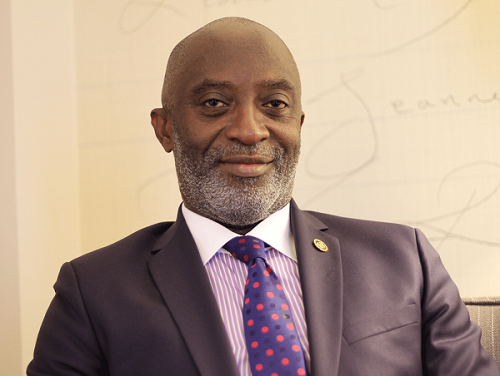Urban rail on the continent is vital in providing a very efficient alternative to transporting large volumes of passengers and freight at high frequencies and reasonable cost. Rallying with this notion, Ghana has embarked on intense rehabilitation and development of its national rail network.
This according to government, is to help facilitate smooth and easy transportation of goods and persons not only within the country but through the sub region towards the creation of jobs and economic vibrancy.
Although the rail system is admittedly the future of Ghana’s transportation, financing remains a daunting task. “In many countries rail has proved extremely difficult to crack in terms of financing” remarked Mr Yofi Grant, the Chief Executive Officer of the Ghana Investment Promotion Center (GIPC) during a recent webinar session focused on Ghana’s railway development and strategy for implementation.
“Here you have the private sector partnering with government. Government is also partnering with development partners towards a model that works.
For us, rail is a very important construct in the mix of regional development, the CEO added.
According to the Chief Executive Officer of the Ghana Railway Development Authority, Mr Richard Dombo, who also participated in the webinar, it costs on average five million dollars to construct a kilometer of railroad; a figure too steep for most developing countries. There is the need to resort to other sources of funding beyond the traditional government coffers.
The total length of the rail network identified as Priority Projects in the country is 1,394 kilometers at an estimated cost of $7.8 billion. The overall total rail network being 4,400 kilometers was outlined in the Railway Master Plan as at 2013 at a cost of US$21.2 billion. So far, most of Ghana’s railway development has emanated from the concept of Private Public Partnerships.
For example, the development of the 303 km Eastern Railway Line, from Accra-Tema to Kumasi with a branch line from Busoso to Atiwa through Kyebi is being undertaken with a strategic investor on a Build-Operate-Transfer basis with Ghanaian participation. Similarly, the development of the first phase from Kumasi to Paga rail line, which covers approximately 103 km, is being financed with US$500 million earmarked out of the US$1billion Chinese CDB facility for development of this project.
“The main financing structure we have for these projects are negotiated concessions that are agreed on. These projects are viable and most of them have this model to source funds’’ explained Mr Grant.
These developments and many more outlined by the Ministry of Railways Development Mr Grant noted, are a worthwhile cause for Ghana’s integrated advancement. “Indeed, some of our policies such as the One District One Factory and Planting for Food and Jobs are spread nationwide and will see rail facilitate their progress. Also, rail is definitely one of the means through which Ghana can increase trade within the sub region” he said.
“By 2022 we estimate to have absorbed about 9.6 percent of freight transport in Ghana which is approximately 190 million tons and an estimated 2.4 billion tons by 2030. This will be upon the completion of the Eastern, Western, Central spine railway, which accounts for about 30 percent of freight in Ghana “added, the chief executive officer of the Ghana Railway Development Authority, Richard Dombo.
Beyond the rehabilitation and construction of several rail lines to enhance internal means of transportation, the Ministry for Railways Development has other projects that seek to create easy access between Ghana and its neighbors within the sub region. These include the Accra -Ouagadougou Line and the Trans ECOWAS Line.
“I think we have a greater opportunity to do this now, and with the signing of the AFCFTA, it means there is going to be more dynamism in facilitating intra Africa trade. It is therefore an important element in the scheme of things related as rail transport will be key to supporting this agenda. I believe that intra Africa trade has the potential of enabling wealth creation on the continent.
We are already seeing investors show keen interest and seek information on what they can do in Ghana. If we don’t offer them the logistics value chain to support their investment, it will all fall flat,” said Mr Grant.
He further explained that the implementation of the African Continental Free Trade Area has the potential to more than double intra Africa trade which will generate exponential wealth for the continent and justify investments into the railways sector.
With the implementation of the African Continental Free Trade Area agreement, Africa will be the world’s largest trade bloc with a combined gross domestic product of more than US $3.4 trillion. Rail as part of the transport mix holds the potential of facilitating free flow of cargo and people in large volumes.
However, this endeavor cannot be attained without the participation of private sector investments. While efforts are underway by government to revive rail transport, the GIPC as the investment wing of government continues to beckon for more investors; as Foreign Direct Investments (FDI) has proven to be invaluable in the successful development of the railway sector worldwide.










